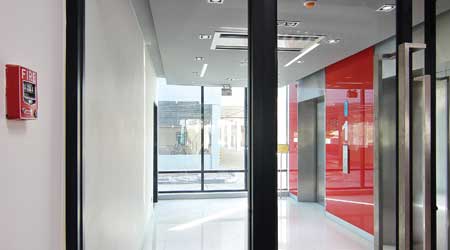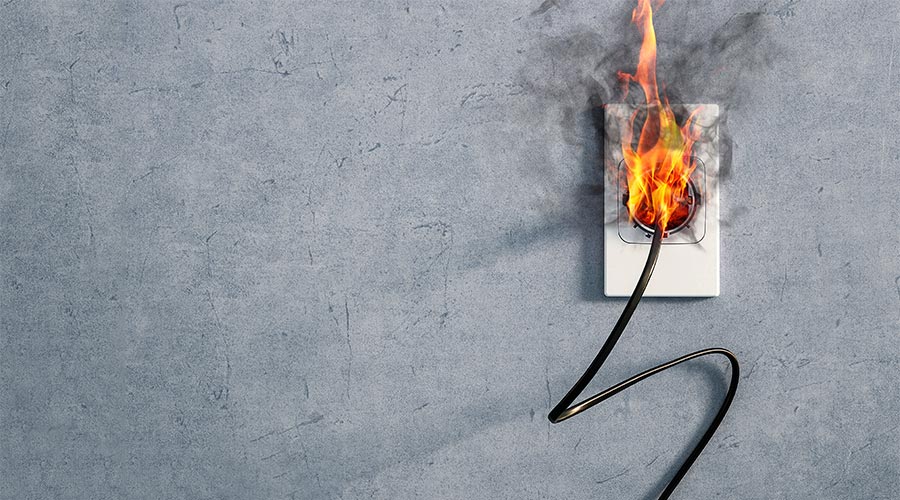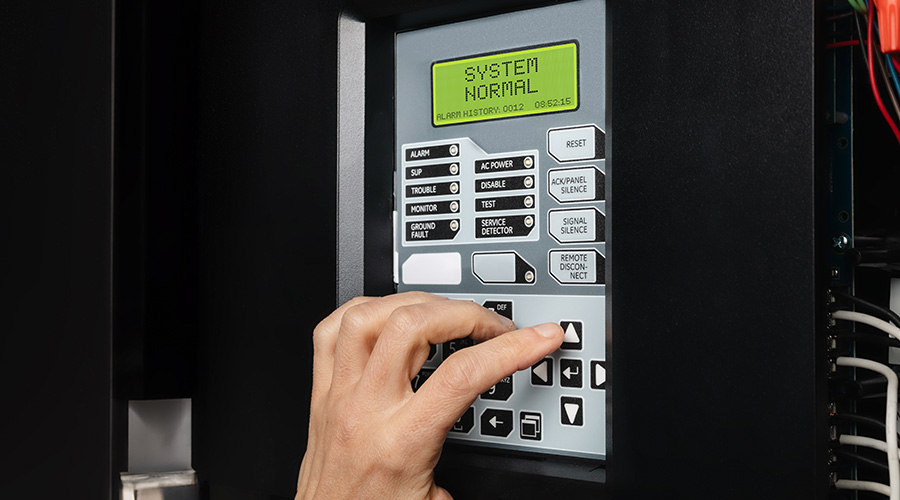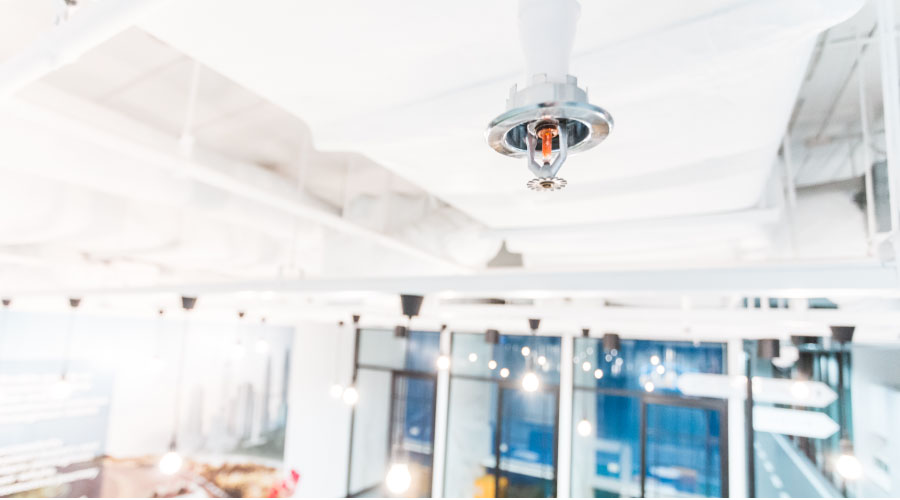 Fire safety system design must address critical interconnected emergency control equipment and wiring to fans, dampers, smoke control equipment, and elevators.
Fire safety system design must address critical interconnected emergency control equipment and wiring to fans, dampers, smoke control equipment, and elevators.Evaluating the Effectiveness of a Fire Alarm System
Mission effectiveness of a fire alarm safety system is based on four factors: Design, equipment, installation, and maintenance.
A good fire alarm replacement plan will consider the four factors that affect mission effectiveness (operational reliability): design, equipment, installation, and maintenance.
System design, especially a replacement design, is a critical step to operational reliability that cannot be overlooked. Unfortunately, fire alarm systems are often designed by individuals who do not have the appropriate fire protection background to perform the design competently. The designer should understand that applicable codes and standards are minimum criteria and provide only a minimum baseline from which to expand. If an alarm installer or vendor agrees to design the system for little or no fee, the reason generally is to ensure that the installer’s or vendor’s equipment will be purchased. If you use your own in-house electrician or an electrical contractor you are comfortable with, it is imperative that you determine their qualifications and that it is not simply a variation of the quid pro quo you get with a vendor or alarm installer. A better option would be to use a qualified electrical or fire protection engineer. Given the investment being made, it is important that you check the credentials of the engineer performing the design to ensure they have a strong background in fire alarm system design. And the design must address critical interconnected emergency control equipment and wiring to fans, dampers, smoke control equipment, and elevators.
The amount of quality fire alarm control equipment on the market has increased in recent years, with many manufacturers adding networking, voice, and other options to their product line. This variety should allow you to obtain quality equipment at a competitive price, without simply going with the lowest bidder. However, this requires that you have a good understanding of the various manufacturers and their strengths and weaknesses. Again, you may need to get the assistance of an industry professional to help vet the options.
When considering who will install your replacement fire alarm system, there is much to consider. Will you trust the system vendor which may be well-qualified on their fire alarm system but may lack true installation skills? Or will you trust an electrical contractor that has terrific installation skills but lacks knowledge of low-voltage or fire-alarm-specific installation techniques? Are in-house installers really qualified to provide the designed system on the required timetable? The best situation is one that has a partnership between the fire alarm designer, installer, and system vendor/programmer. In this way, the design is matched closely to the installation needs, and the programming is effective and accurate to the design. And all of these individuals should be intimately involved in the creation of a system migration plan and the final acceptance testing of the system.
The ultimate success of a replacement fire alarm system project is measured years later in long-term reliability and operational effectiveness. Will the new system require a significantly larger amount of inspection, test, or maintenance time and effort? Can system additions or modifications be made easily? Are only certain individuals or vendors allowed to perform the required annual testing of the system? Establishing a testing and maintenance plan that will complement the facilities’ maintenance program may assist in ensuring top management’s approval of the replacement system. And following the testing and maintenance plan will increase the life of the system and provide the optimum return on investment.
Larry D. Rietz (lrietz@jensenhughes.com), SET, is director, Denver, for Jensen Hughes. Wayne D. Moore (wmoore@jensenhughes.com), PE, is vice president and technical fellow for Jensen Hughes.
Related Topics:














